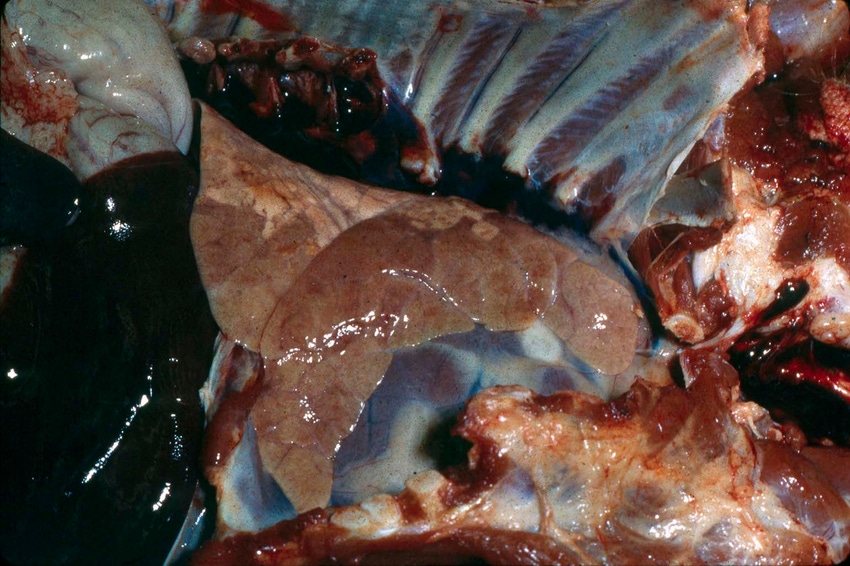Get to the root of porcine respiratory disease complex
A complete investigation will help you and your veterinarian identify causes of respiratory disease, limit losses and return your operation to better health.
November 20, 2018

By Dale Miskimins DVM, MS, South Dakota State University
Respiratory disease incidence increases in swine in the fall and winter. Changeable weather seems to trigger outbreaks. You and your veterinarian can supply meaningful samples to aid in determining a diagnosis. Contact your local diagnostic laboratory if you have questions on sampling.
When choosing animals, both live and dead acutely affected pigs may be submitted. Untreated animals are always best. A suggested list of tissues to submit (if animals can’t be submitted) includes: tonsil, trachea affected lung and mediastinal lymph nodes. Several pieces of lung should be included if lung lesions vary. It is best to put duplicate pieces in 10% formalin. Diagnostic laboratory forms should be included with submissions. Always identify tissue containers if they are from different ages, pens or barns.
Respiratory disease is often a combination of viral and bacterial agents. The laboratory will do appropriate testing to sort out problems. The workup will most likely include necropsy by a veterinary pathologist, histopathology, bacteriology, virology and molecular diagnostics (polymerase chain reaction testing).
Common viral agents
The most common viral agents involved include:
• Porcine reproductive and respiratory syndrome virus
• Swine influenza virus
• Type 2 circovirus
Common bacterial agents
The most common bacterial agents involved include:
• Pasteurella multocida
• Streptococcus suis
• Haemophilus parasuis
• Mycoplasma hyopneumoniae
• Mycoplasma hyorhinis
A complete investigation will help you and your veterinarian identify causes of respiratory disease, limit losses and return your operation to better health.
Submission forms and other diagnostic testing information for the SDSU Animal Disease Research and Diagnostic Laboratory can be found at its website.
You May Also Like



